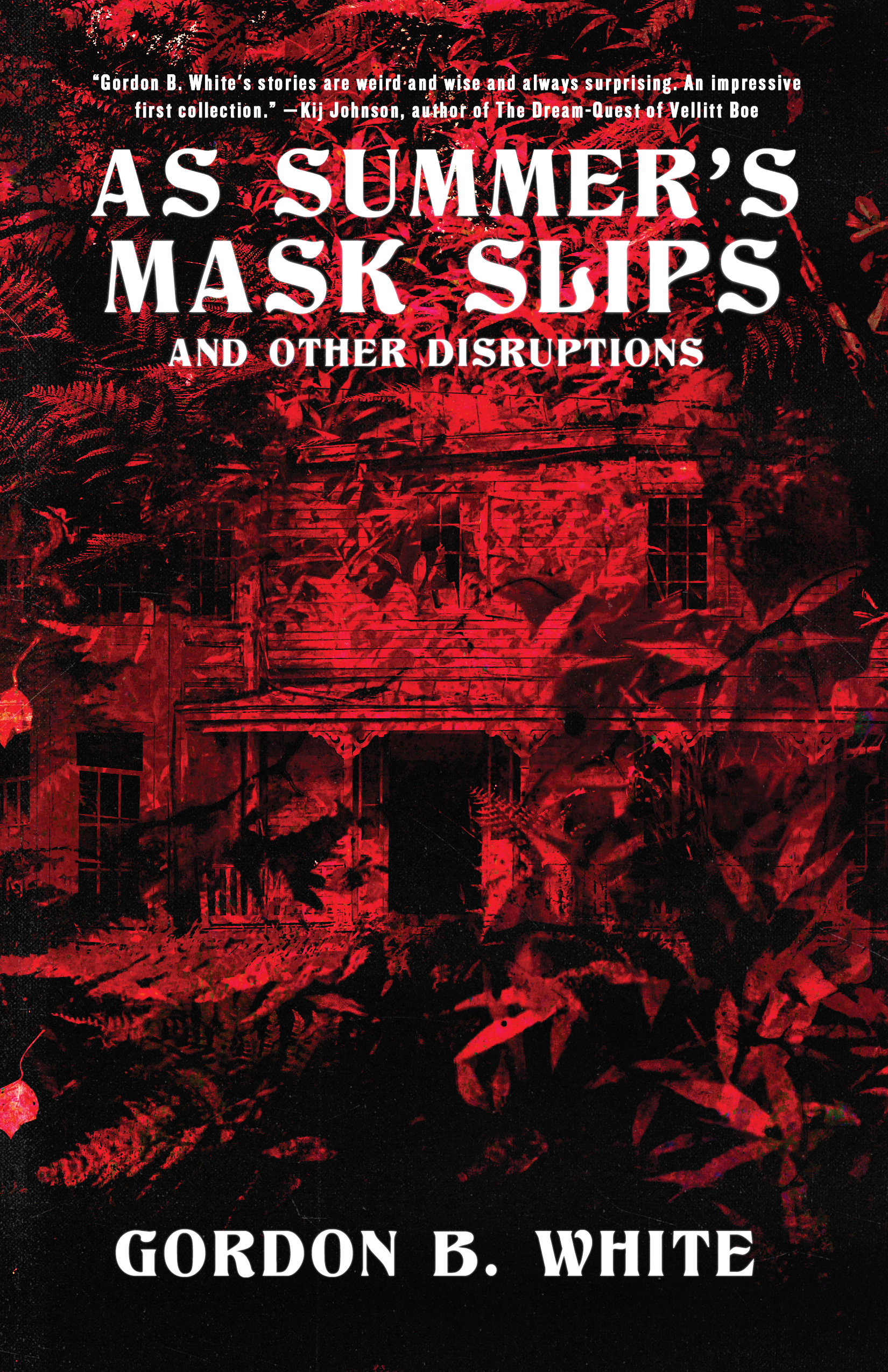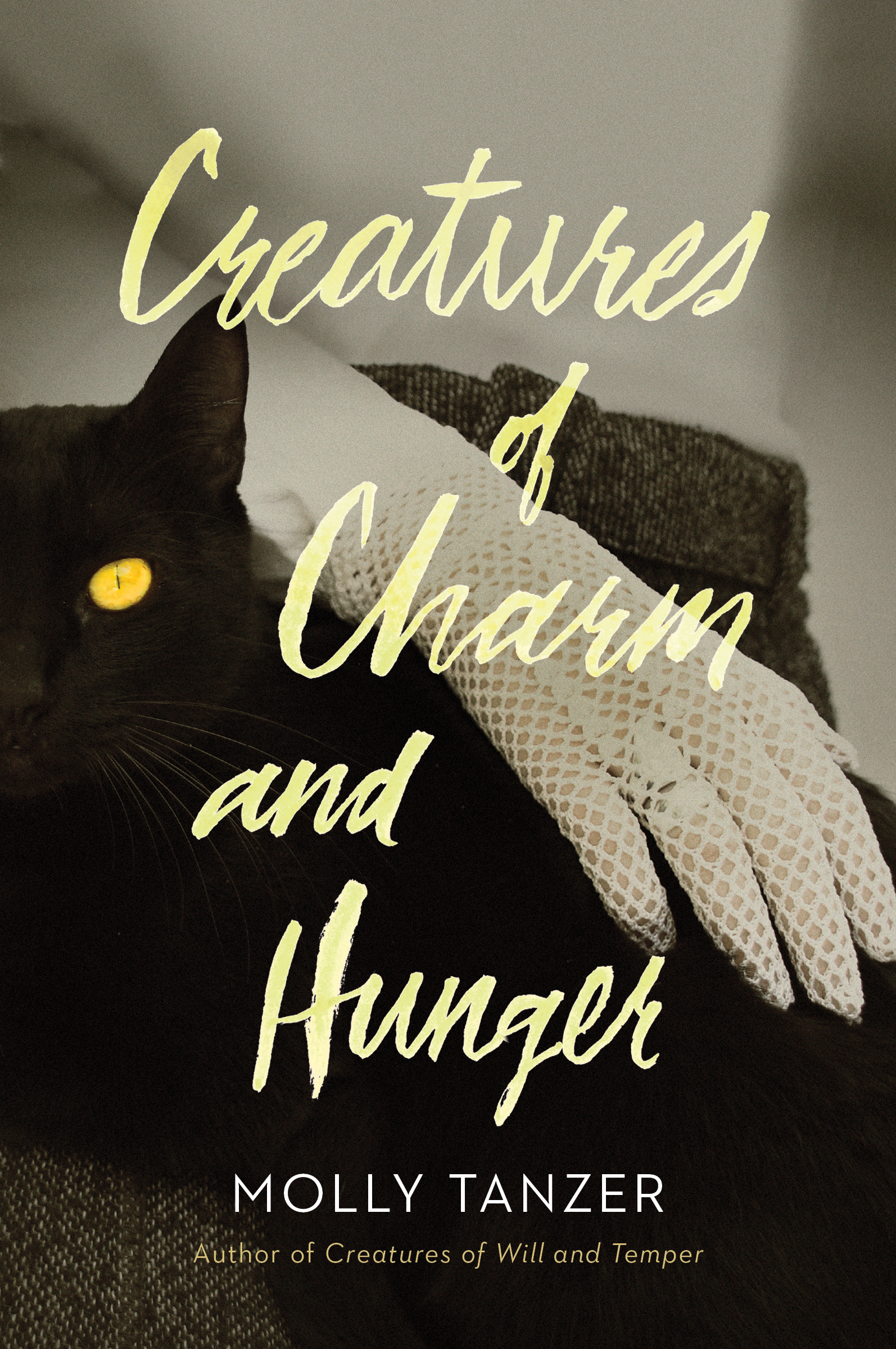
This week on The Scariest Part, my guest is Gordon B. White, whose debut collection is As Summer’s Mask Slips and Other Disruptions. Here is the publisher’s description:
A genderfluid witch in a small Southern town prepares for their Black Cotillion coming out party. Singing worms converge on an old woman and young boy living in a house buried deep underground. Revenge drives an angry spirit through possession after possession in the bare-knuckle boxing ring. A father and son’s canoe trip to one of the world’s “soft places” culminates in an ecstatic encounter with the Weird.
These are just a few of the fifteen stories contained in As Summer’s Mask Slips and Other Disruptions, Gordon B. White’s debut collection of horror and Weird fiction.
And now, let’s hear what the scariest part was for Gordon B. White:
My first collection, As Summer’s Mask Slips and Other Disruptions, collects thirteen stories previously published between 2013 and 2019, as well as two new ones. The published collection is actually its third or fourth iteration — different selections in different permutations were fiddled with again and again to find the right mix of breadth, depth, and cohesion. In the end, it’s far more of a curated exhibit than an archive. There is, however, a ghost in the museum.
I had always written but only began to seriously pursue publication after my father died in 2011. His sudden, vicious battle with cancer threw my world into upheaval. We had been very close and suddenly I was faced with this senseless void. As the brutal realization set in that our time is limited, my lifelong fancy for writing became a burning drive. Those were productive years in the immediate aftermath, and I can see now how I was always writing towards something that I wasn’t quite ready to reckon with.
I won’t go story by story, teasing out what I felt and when, but if each story is a snapshot of a particular mental space, I can point out a few orbs of ectoplasm. “Hair Shirt Drag” is set in a Southeastern town that’s only a few degrees off from where my father grew up. There’s even a family name or two in there, as well as an authentic bit of divination. Similarly, the Rapture lingering over “The Rising Son,” the religion vs. science vs. the void in “The Sputtering Wick of the Stars,” the cycle of birth and death in “Open Fight Night at the Dirtbag Casino” — these all have subdermal elements and hidden references to the time and the interests I shared with my father. He floats in the background, though, never coming into focus.
A few years in, however, and I became convinced I was crafting ornate but empty little puzzle boxes. I wanted to write something truer that could move me and, by extension, readers. I needed to break through the abstractions and charades, but to do that I had to find something that truly affected me. Something that wounded me.
My first stab at writing about my father’s death is the collection’s title story, “As Summer’s Mask Slips.” In it, an adult child goes back to the house where her father once lived, but finds herself followed through the woods by an uncanny presence. She ruminates on the lessons of the past and the loss of comfort, all the while stalked by something that reminds her obliquely of her pain. The woods she walks through, though, are the real woods around my father’s house. The canoe is real, the lake is real. The presence is … well, maybe.
Up until that point, “As Summer’s Mask Slips” was the most difficult piece I had written. I took the dark thoughts and struggles I had been through — that I was still going through — and toured them around the haunted house of my memory. If it wasn’t me, exactly, but the fictional character of Sarah who underwent the ordeal, well, she was the filter I needed.
In fact, when Sarah puts off the difficulty of confronting the empty house by taking a walk through the woods, she thinks: “This … is how I will confront the loss. By coming at it horizontally.” With her help, I did it, too, and for a while after I finished that story, I thought I was done. I had left the emptiness on the far bank as I pushed my craft out across the dark waters. What more could I do?
A couple of years later, I sat down with the relatively academic aim of writing a horror story which featured both non-toxic masculinity and the ecstatic possibility of an encounter with something unworldly. Although madness and despair are the usual bedfellows of Things Man Was Not Meant to Know, why couldn’t joy and liberation be there instead? If we live in a finite and circumscribed world, why wouldn’t we rejoice to find those limits were illusions?
Of course, it wasn’t that simple. Thinking of positive male role models and how to make sense of the void, I quickly realized I hadn’t finished writing about my father when I finished “As Summer’s Mask Slips.” No, I had ended that one with a canoe on the water, suspended above the darkness but afraid to look, and so that’s where “Birds of Passage” began — in a canoe, but this time moving into the void, but then past it. As it began to take shape, though, I was afraid. I flinched to think of pulling up those memories and drawing on the loss I still very keenly felt, but I didn’t see any other choice.
Where “As Summer’s Mask Slips” was a cipher, “Birds of Passage” was written in a first-person voice close to my own. The realistic parts are taken from a real canoe trip down a real river and a night around the fire which sent up a burning piece of paper like a phoenix. There is a real love between the father and son, and real sacrifice, too, although that part is in a fictionalized form. Nevertheless, the father in the story meets his end as bravely as my own father did.
But while my autobiography and my fiction were running neck and neck as I drafted “Birds of Passage,” I — the real me — had not made the same peace with my father’s death that I knew the narrator had to by the end. I was dreading it, drawing up the brink, yet a miracle occurred as I hit the last passage. The momentum of processing it all – reliving it all – through the writing hit, swooping beneath me like a wind and carrying me up off of the page, past the fear and sadness that had been with me for almost a decade. I felt a very real weight slip from me as I wrote the final lines about wings of fire.
I would have been proud of that story even if was never published. It was published, though, and some readers have told me that it lifts them up, too. Knowing that my father is still out there, shining in a different form, I feel a warm contentment.
And so, while the void is still out there, I now also take comfort in believing that there are little embers in all our stories. It takes patience and it takes courage to fan them into flames, but once we do, we can light the way forward.
As Summer’s Mask Slips and Other Disruptions: Amazon / Barnes & Noble / Powell’s / IndieBound / JournalStone
Gordon B. White: Website / Facebook / Twitter / Goodreads / Amazon Author Page
Gordon B. White has lived in North Carolina, New York, and the Pacific Northwest. A graduate of the Clarion West Writing Workshop (2017), his fiction has appeared in venues such asPseudopod,Daily Science Fiction, and the Bram Stoker Award® winning anthology Borderlands 6. Gordon also contributes book reviews and interviews to outlets including The Outer Dark podcast, Nightmare Magazine, Lightspeed Magazine, and Hellnotes.




